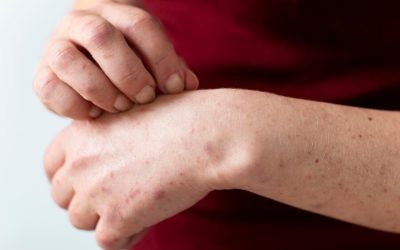Top Psoriasis Treatment in Punjab: Affordable Costs and Expert Care for Effective Results

book your appointment

Introduction
Psoriasis is a chronic skin condition that affects millions worldwide, including a significant number of individuals in Punjab. Dr. Parwaaz Matharoo, a renowned dermatologist at The House of Skin in Punjab, specializes in providing comprehensive and effective options for psoriasis treatment. This page aims to offer detailed insights into psoriasis, its causes, symptoms, and the advanced treatment methods available at The House of Skin.
What is Psoriasis?
Psoriasis is an autoimmune disorder marked by the rapid accumulation of skin cells, resulting in scaling on the skin’s surface. It typically affects regions such as the elbows, knees, scalp, and lower back. The condition is non-contagious but can cause significant discomfort and impact an individual’s quality of life.

Types of Psoriasis
- Plaque Psoriasis: The most common form, causing dry, raised, red skin lesions covered with silvery scales.
- Guttate Psoriasis: Appears as small, drop-shaped sores on the trunk, arms, or legs.
- Inverse Psoriasis: Affects skin folds, causing bright red, shiny lesions.
- Pustular Psoriasis: Identified by the presence of white pustules encircled by red, inflamed skin.
- Erythrodermic Psoriasis: A severe form that can cover the entire body with a red, peeling rash.
Causes and Triggers
Psoriasis is primarily caused by an overactive immune system that accelerates skin cell growth. While the exact cause remains unknown, several factors can trigger or exacerbate psoriasis, including:
- Genetics: A family history of psoriasis increases the risk.
- Infections: Bacterial or viral infections can trigger outbreaks.
- Stress: Physical or emotional stress can worsen the condition.
- Lifestyle Factors: Smoking, alcohol consumption, and obesity are linked to psoriasis flare-ups.
Symptoms of Psoriasis
Common symptoms include:
- Red patches of skin covered with thick, silvery scales.
- Dry, cracked skin that may bleed.
- Itching, burning, or soreness.
- Thickened or ridged nails.
- Swollen and stiff joints.
Diagnosing Psoriasis: What to Expect
Identifying Triggers and Risk Factors
Diagnosing psoriasis generally includes a physical examination of the skin, scalp, and nails. A healthcare provider will look for characteristic signs such as red, scaly patches, and may ask about your medical history and symptoms.
Tests and Examinations for Psoriasis
In some cases, a skin biopsy might be performed to rule out other skin disorders and confirm the diagnosis of psoriasis. Blood tests may also be conducted to check for associated conditions like psoriatic arthritis.
Identifying Triggers and Risk Factors
Patients may be asked about their lifestyle, stress levels, recent illnesses, medications, and family history to identify potential triggers and risk factors that could exacerbate psoriasis.

Psoriasis Treatment Options at The House of Skin
Topical Treatments for Psoriasis
- Corticosteroids Topical corticosteroids are the most commonly prescribed treatments for mild to moderate psoriasis. They help reduce inflammation and relieve itching.
- Vitamin D Analogues These synthetic forms of vitamin D slow down skin cell growth and can be used alone or with other treatments. Examples include calcipotriene and calcitriol.
- Coal Tar Coal tar products help reduce scaling, itching, and inflammation. They are available in various forms, including shampoos, creams, and bath solutions.
- Salicylic Acid Salicylic acid helps remove scales and smooth the skin. It can be found in over-the-counter and prescription treatments, often combined with other medications.
Phototherapy for Psoriasis
- UVB Phototherapy UVB phototherapy involves exposing the skin to ultraviolet B light under medical supervision. It slows down the growth of affected skin cells and is effective for widespread psoriasis.
- PUVA Therapy PUVA (Psoralen plus UVA) therapy combines a drug called psoralen with UVA light exposure. This treatment is used for more severe cases of psoriasis and requires careful monitoring.
- Excimer Laser Therapy Excimer laser therapy targets specific areas of the skin with controlled UVB light, making it suitable for localized plaques. It is often used when other treatments have failed.
Natural and Alternative Psoriasis Treatments
- Herbal Remedies Herbs like aloe vera, turmeric, and Oregon grape have anti-inflammatory properties and may help soothe psoriasis symptoms. These should be used with caution and under a doctor’s guidance.
- Dietary Supplements Supplements such as fish oil, vitamin D, and evening primrose oil are believed to have beneficial effects on psoriasis, though more research is needed to confirm their efficacy.
- Homeopathy Some patients turn to homeopathic treatments, which involve using highly diluted substances to stimulate the body’s healing processes. Evidence supporting their effectiveness is limited.
- Acupuncture Acupuncture, a traditional Chinese medicine practice, may help reduce pain and stress associated with psoriasis, although scientific support is mixed.

Lifestyle and Home Remedies for Psoriasis
- Skin Care Tips for Psoriasis :Regular moisturizing is crucial for managing psoriasis. Use fragrance-free products, avoid harsh soaps, and take lukewarm baths to help soothe the skin.
- Stress Management Techniques :Stress can trigger or worsen psoriasis. Techniques like yoga, meditation, deep breathing exercises, and counseling can help manage stress levels.
- Diet and Nutrition for Psoriasis Management :Eating a balanced diet rich in anti-inflammatory foods, such as fruits, vegetables, and omega-3 fatty acids, can help reduce flare-ups. Avoiding alcohol, red meat, and processed foods may also be beneficial.
- Exercise and Physical Activity: Regular physical activity helps maintain a healthy weight, reduce stress, and improve overall health, which can positively impact psoriasis management.
Psoriasis in Children: Special Considerations

Pediatric Psoriasis: Diagnosis and Treatment Psoriasis in children can be more challenging to diagnose and treat. Pediatric dermatologists use child-appropriate treatments and consider the psychological impact on young patients.
Managing Psoriasis in Young Patients Treatment plans for children often involve milder medications and a focus on gentle skin care routines. Education for both the child and parents is essential.
Tips for Parents and Caregivers: Parents should monitor their child’s skin for changes, ensure adherence to treatment plans, and provide emotional support. Creating a positive and understanding environment can help children cope better with the condition.
Book an Appointment
Taking the first step towards managing psoriasis effectively starts with a consultation. Dr. Parwaaz Matharoo and his team at The House of Skin are dedicated to offering personalized care and the most advanced treatment options. Booking an appointment is easy and can be done through our website or by contacting our clinic directly. Let us help you achieve healthier skin and improve your quality of life.
For more information about our psoriasis treatment options or to schedule a consultation, please contact us:
- Address:Kiran Hospital, Gill Rd, Opp. Janta Nagar Chowk, Dasmesh Nagar, Ludhiana, Punjab 141003
- Phone: +91 82735 00120
- Email: pmatharoo14@gmail.com
- Website: The House of Skin
Our friendly and knowledgeable staff are here to assist you with any questions or concerns you may have. We look forward to helping you on your journey to better skin health.
Frequently Asked Questions (FAQs)
No, psoriasis is not contagious. It is an autoimmune condition that cannot be transmitted from person to person.
While there is no cure for psoriasis, effective treatments are available to manage symptoms and reduce flare-ups
Phototherapy results vary, but many patients see improvements within a few weeks of consistent treatment.
Biologics are generally safe for long-term use but require regular monitoring by a healthcare professional to manage potential side effects.
Yes, lifestyle changes such as maintaining a healthy diet, reducing stress, and avoiding triggers can significantly improve psoriasis symptoms and overall well-being.
Get Consultation With Our Experts
Schedule a consultation today and embark on a journey towards informed decision-making and success. Your challenges, our expertise – let’s collaborate for a brighter future.

